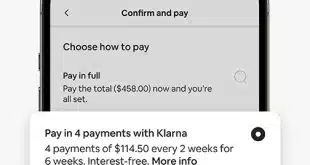A proposal for a new payment application that would allow merchants to convert bundles of consumer checks to electronic transactions in a central location has received largely favorable comment from banks, merchants, and other industry participants. NACHA, the Herndon, Va.-based rules-setting organization for the automated clearing house, is reviewing written comments received on the proposal, with the likely next steps to include a vote by NACHA's membership. At the same time, a recent ruling published by the Federal Reserve Board has lent impetus to the proposal, as it would allow merchants to convert checks without obtaining signed authorization from consumers for each transaction. “The comments were generally in favor,” says a NACHA spokesman in e-mail correspondence with Digital Transactions News. “NACHA will be analyzing them in detail to determine how quickly we can proceed. Assuming that we do not learn of additional issues raised during the comment period that would require further study or analysis, then, yes, we would prepare a ballot for NACHA's voting membership.” The comment period on the proposal, provisionally known as back-office conversion, closed Feb. 3. NACHA's existing electronic-check application for point-of-sale transactions, known as point-of-purchase (POP) conversion, has met with lukewarm adoption. Multi-lane retailers find it expensive to equip each checkout with the scanners they feel they need to make check images, and most merchants find burdensome NACHA's requirement for POP that cashiers obtain written authorization from customers. These obstacles have made POP a slow-growing e-check application for NACHA, with transactions totaling 45.8 million in the fourth quarter, up 11% over the year-ago period. By contrast, accounts-receivable conversion (ARC) soared 42%, to 459.1 million transactions, trailed only slightly by Internet payments (WEB), which ballooned 40%, to 283.4 million transactions. Back-office conversion, which has been under consideration at NACHA for several years and has attracted considerable interest from merchants (Digital Transactions News, Sept. 30, 2004, and April 20, 2005), would allow payees to convert consumer checks at a central location, rather than at the point of sale (under NACHA rules, checks written on business accounts are not eligible for conversion), much as billers use ARC to convert checks received at lockboxes. In this way, merchants could avoid both the need to equip multiple checkouts with scanners and the extra time involved in POP conversion. Helping matters is a much-anticipated ruling released Dec. 30 by the Fed, which clarifies provisions of Regulation E, the rule that governs electronic funds transfers. Under the new ruling, retailers may convert checks to ACH transactions without getting signed authorization from customers for each transaction, so long as they post notices at the point of sale notifying customers that the conversions will take place. Merchants must also duplicate the notice in a document, such as a receipt, that consumers take with them. The take-away notice must also point out that funds may be debited as soon as the same day, and that checks may not be returned. The Fed ruling also allows merchants that convert checks to process items as checks, for example through image exchange, if they wish, and sets out language retailers can use to notify consumers this may happen. This so-called notice-equals-authorization rule, which NACHA had already adopted for its proposal, has been seen as crucial to making back-office conversion feasible. Merchants argue the need to get customer signatures for each transaction would have undermined the efficiency of converting batches of checks at once. “The Fed ruling on Reg E really paves the way for us,” said Jacki Snyder, director of electronic payments at SuperValu Inc., Eden Prairie, Minn., during a presentation she made earlier this month at an electronic-payments conference. “Notice-equals-authorization is very important. It really blows the [return on investment] on this if we have to stop and get signatures from customers.” A little-noted feature of the Fed ruling is that it brings merchants under the umbrella of Reg E's coverage for the first time, albeit for what the Fed calls the “limited” purpose of obtaining authorization from consumers for e-check transactions. Previously, Reg E applied only to financial institutions.
Check Also
Can/Am’s Teller Payments and other Digital Transactions News briefs from 2/17/26
Can/Am Technologies Inc. has introduced Teller Payments, aimed at helping state, local, and education agencies process …





